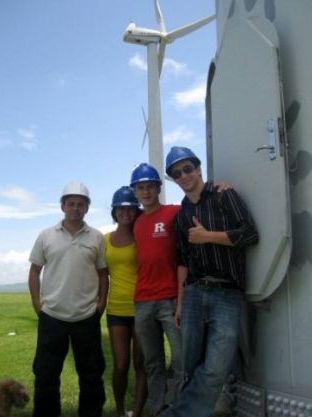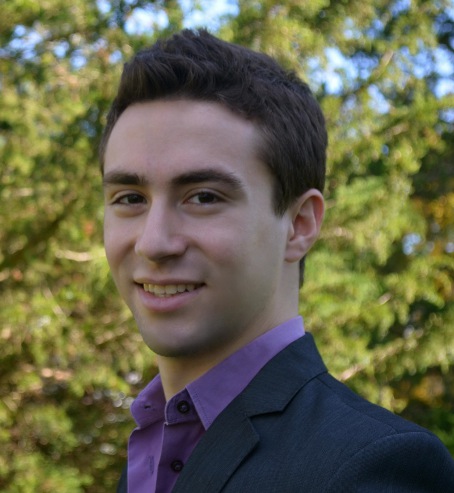
We at New York International love to hear stories about successful entrepreneurs and the challenges faced when starting up a business in the U.S. We recently had the opportunity to talk with entrepreneur Benjamin Lapidus, who co-founded the GREEN Program along with Jean Paul Cazedessus, Melissa Lee, and Mikhail Naumov. The program is an intensive education course for university students from around the world, offering the chance to learn about renewable energy in Costa Rica.

NY Intl: Tell us about the GREEN Program.Ben: The official name is the Global Renewable Energy Education Network, it’s a bacronym for GREEN. We bring university students to Costa Rica to learn hands-on about renewable energy and sustainability. We show and teach them about hydro power, geo power, wind, solar, and biomass. We also have ancillary initiatives with sustainability, biological reforestation, sustainable farming, and organic gardening. We’ve had university students from over 80 universities in more than ten countries to Costa Rica each year and we are looking at potentially starting another program in Iceland.NYIntl: How did you get the initial idea for the program?Ben: It’s a long story. During my sophomore year at Rutgers University in New Jersey. I was working my way through a series of internships and finally landed the one that I wanted, which was at the trading offices of a leading finance institute. But ten weeks into the program I realized that I wanted more than a life in finance – so I quit.I had wanted to go to Costa Rica for a long time, so I had emailed about 50 different hotels offering to work in exchange for free room and board, and three days per week to travel and look for an opportunity that didn’t involve financial services. Only one hotel owner responded to me; Jean Paul Cazedessus who had a hotel on Lake Arenal in Guancaste. I went down and worked with him for a while. One day he was telling me about his unrefined business concepts, one of which was to bring elementary students to Costa Rica to learn about the surrounding renewable energy facilities. It turns out that Lake Arenal powers 40% of the country’s energy from a variety of resources. If you stood on his patio you could see all the different energy plants, wind turbines, geothermal energy from the volcano, the dam on the lake, and solar panels too, so from that one spot in Costa Rica you could see the future of renewable energy.
I thought it was a unique educational opportunity. I’d just had the experience of starting the entrepreneurial society with a couple of friends at Rutgers and I thought – “We know how to market to students, we know how to run the logistics, we know how to make a website.” I called on my two partners from the entrepreneurial society. They flew the next day to Costa Rica and really liked the idea. After gathering information and putting the program together we had an info session at Rutgers University. Five weeks later we had 12 students from Rutgers join our first program.NY Intl: How did you get universities from around the world to participate?Ben: First we got universities from within our hometown to participate and then the best tactic turned out to be concentrating on running an excellent service and influencing word-of-mouth. International students studying abroad here in the U.S. would go on the program for 12 days and when they returned, spread the word at their hometown universities. By now we’ve had students from Venezuela, Ecuador, the UK, Spain, China, Singapore, and India.NY Intl: How does the study course integrate with the university programs?Ben: Most of our annual 500 students that go to Costa Rica get credit for it because we provide rigorous materials: A lot of students come from an engineering background so the program fits right into their curriculum, but even for those students with a different university curriculum, the baseline conversations and roundtable discussions help the them gain a basic understanding of the technologies behind renewable energies and steps towards saving the planet.NY Intl: Do you have any success stories from students coming back from these trips?Ben: We have capstone projects during the 12 days where students choose a project that they want to work on, or a particular thing they’d like to research.We had one student who used his capstone project materials to pitch an idea to the USDA (United States Department of Agriculture) about using duckweed as a biofuel. They loved it and offered him an internship to study biofuels in Brazil. Another student used his capstone project to create his own job in renewables at a national electric company. We also had two students who started their own biomass company one year after the program. Today they are building biogas tanks out of Illinois.NY Intl: Is there anything you would have done differently now that you can look back? What advice would you have for others starting up?Ben: My one piece of advice: Get good but inexpensive lawyers – or friends who won’t charge you for their services. Traditional law firm fees can be a huge burden, especially for startups. Once we paid $1200 for a generic 6 page document, which wasn’t even what we needed. So instead I went to the SBDA (Small Business Development Association), which was really helpful – because of them, we received free legal, banking, and accounting services.The SBDA, SBA and SCORE are all organizations that offer free services for entrepreneurs, which proved to be extremely helpful.NY Intl: How does starting up in NY compare to other places such as Philadelphia?Ben: While Philadelphia is a great place to live and work, a lot of the economic initiatives happen faster here than in other cities. With NYCEDC (New York City Economic Development Corporation) and the NYC Investment Fund working toward developing the city’s economy there are a lot of economic trickle down effects in this city. Government money comes here before other places, so there’s a lot of access to economic stimulation for business. Right now we have free office space in Brooklyn; I wouldn’t have that in Philadelphia that I know of.Also, the transportation system here is great. Unlike Boston or Philadelphia the public transportation services get you anywhere in the metropolitan area in a short amount of time. Even during Sandy I felt the MTA did a great job of getting people around. To learn more about the GREEN Program visit http://www.thegreenprogram.com/Ben has started a new venture in New York City – Mana Health, a technological solution to help doctors harness a patient’s medical data and diagnosis more efficiently and effectively.

